HOME | ABOUT US | MEDIA KIT | CONTACT US | INQUIRE
HOME | ABOUT US | MEDIA KIT | CONTACT US | INQUIRE
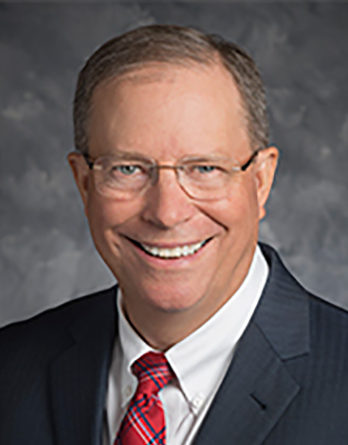
Typical Kansans? There’s no such creature. Kansans are small-business owners, CEOs of global companies, college presidents, non-profit leaders, athletes, authors, film makers, entrepreneurs and entertainers. Among other things. That’s why we launched 50 Kansans You Should Know in 2011, to put some faces on the diversity of leadership driving growth and bringing vitality to communities across the Sunflower State. Talented, influential, engaged. If those qualities are truly Kansan in nature, then here are 50 ‘typical’ Kansans for 2022.
A | B | C | D | E | F | G | H | I | J | K | L | M | N | O | P | Q | R | S | T | U | V | W | X | Y | Z
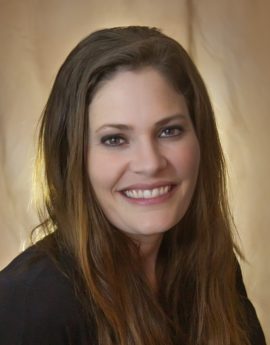 JoEllyn Argabright
JoEllyn Argabright
Grass Roots Garden Hub, Atwood
JoEllyn Argabright followed her heart from Denver to northwest Kansas, where a college sweetheart at K-State had returned to the family farm near Atwood. In the most sparsely populated quarter of the state, she found fulfillment: husband, two kids, career and something just as important: Connection. “Connection is a driver for change,” she says. “It is also the foundation on which communities were built. For better or worse, it is difficult to be anonymous in rural areas.” That’s especially true if you cover a 26-county area as a K-State extension agent, something she did for 10 years, offering guidance to locals on everything from food safety to reducing skin-cancer risk in the High Plains sunshine. Pandemic fatigue prompted her to shift gears in late 2020, and she’s now the Thomas County court administrator for a seven-county region. “There are a million things rural communities could be doing to be more sustainable,” Argabright says. “Talent recruitment and retention are at the top of the list.” She’s living proof that the Brain Drain can be reversed, but believes more must be done: better job training, more proactive economic and community development practices, more strategic civic thinking about the future. To that end, she co-founded the Grass Roots Garden Hub in 2020, helping spread the gospel of locally raised foods. As a budding entrepreneur, she says, “my goal is to support any framework that pushes Atwood to be a robust, thriving community far into the future.“
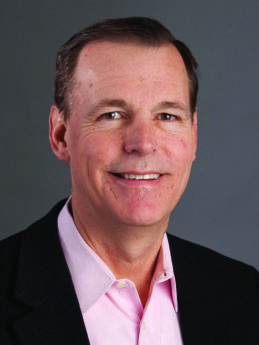 Michael Brown
Michael Brown
Euronet Worldwide, Lenexa
Even in Kansas, it’s not hard to feel the tremors of a world-shaking event like the war in Ukraine. Michael Brown could tell you all about that. He’s the founder of Euronet Worldwide, the electronic payments processor that rocketed to success not long after the fall of the Berlin Wall. Fresh off a record 2021 that yielded a hair under $3 billion revenue, economic disaster rocked the world with Russia’s military invasion of Ukraine. Brown responded by ordering a waiver of transaction fees for Ukrainians and said his goal was to draw on an established network of financial services to further assist those in need. Brown is a veteran entrepreneur who has leveraged his business success into some impressive seven-figure philanthropic efforts, primarily focused on education. His Innovative Software, co-founded in 1979, became the fastest-growing company in the region by 1986, and that was just one of the multiple companies he has founded or led over the years. He’s a Rockhurst High School graduate who earned a degree in electrical engineering from MU; then a master’s in molecular and cellular biology from UMKC. Since co-founding Euronet in 1994, he’s built it into a global network of more than half a million locations and other services in 175 nations.
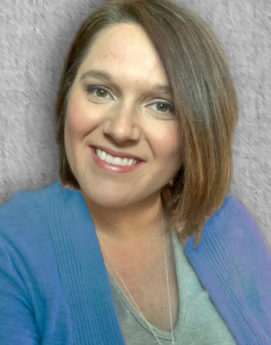
Miranda Bruening
HBK Architecture, Independence
Miranda Bruening represents a big win for a Kansas community challenged, as most are, with keeping talented young people close to home. But the city represents a big win for her, as well. “It’s a great place to raise a family, it’s our hometown, and it actually supports a small firm like ours,” says the co-owner of HBK Architecture. She left town to study design at K-State, then briefly sampled life in Texas before returning to the southeast Kansas region, eventually joining a firm that offers a wide range of services in a town of just 8,700. A full-time job and starting a family would fill the calendars of most young executives, but Bruening still had more to give, and a vision for Independence that wouldn’t go away: She pushed to convert extra space in a building that was too large for her firm by itself, then worked to acquire another to create Founders Place–Indy. Like he firm itself, it’s the kind of co-working space you’d expect to find in a big city. In her youth, she had a passion for building things. Now, she says, “I hope that we can drive the desire for other young business people like me to come back to Independence and help the town grow into a vibrant area with offerings for anything that you can get in larger cities (obviously on a much smaller scale). The opportunities for people to work remotely now allow for different job types to be able to live in our rural areas and grow their offerings.”
Gratia Carver understands that in business, nothing really adds up unless you can measure it. Says Blue KC’s chief experience officer: “Even in a service industry, you can measure, recognize and reward from a numbers perspective, almost on an even keel with soft skills.” The Lean Six Sigma black belt she brought to the Kansas City area’s largest health insurer four years ago is now enhancing relationships with a company that covers more than 1 million lives, and Carver is tracking every customer experience as measurable you can imagine. She’s a Seattle native who came to Kansas City not long after high school, met someone special, and moved here quite “unexpectedly,” she says, “I married my husband a year later, and we went to Mid-America Nazarene University together.” There, she earned a business degree and marched into an IT career. “But it became no fun,” she says. “Everything that goes wrong is IT’s fault.” So she pivoted to an emerging field. “At the time, customer experience was kind of a new thing for all industries, but I could see the difference it was making in customers’ lives.” It’s one thing to do that for companies like Ingersoll Rand, Russell Stover Candies and Disney; insurance is another game. Still, Carver says, “there has to be a way to measure the effectiveness of whatever you’re doing. It has helped me justify resources. … You have to be able to prove to leadership not only what’s needed to service members/customers at this level, but here’s the consequence if we don’t.”
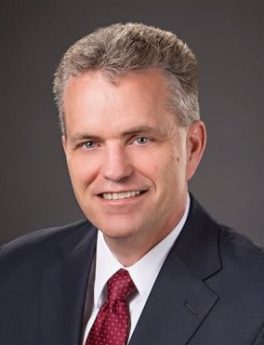 Robert Copple
Robert Copple
Ascension Via Christi, Manhattan
For Bob Copple, health care at the community level can’t be siloed. The CEO of Ascension Via Christi’s Manhattan hospital has marked time in administrative roles in various small Midwestern towns where, he says, “I came to appreciate how intertwined health care is with local economic development.” So he works to forge connections with education and local employers to support the creation of additional health-care access points and strengthen relationships with other providers. “Every patient who remains in your local community for health care supports retail, other health-care providers, and local businesses,” Copple notes. “These basic needs are driving our provider network strategy, our focus on patient safety and patient experience, leverage technology such as robotic surgery and advanced imaging, and continually work to advance our physician and regional relationships.” Though 16,000 students just across the street at K-State, the hospital’s clientele is largely what you’d expect in other mid-size towns. Still, he says, there are challenges. “We are a very mobile society, so having strong and well-coordinated health services is important to reduce out-migration and serve people close to home.” A native of Winfield, he earned a degree in industrial engineering at K-State, then a master’s in that field. “I really liked the concept of pulling together people, equipment and systems to make improvements,” he says, and it’s been “a great way to use my technical skills to serve and help other people.”
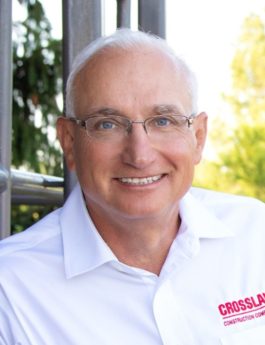 Ivan Crossland, Jr.
Ivan Crossland, Jr.
Crossland Construction, Columbus
At just shy of 3,100 residents, the southeast Kansas burg of Columbus seems an unlikely place for a $1.4 billion-dollar construction company to call home. But when Ivan Crossland started Crossland Construction in 1977, he had a vision—and a passel of 10 children that would provide much of the talent driving growth in the 45 years since. From the family garage where he started it, Ivan set the foundation for a firm ranked by Engineering News-Record as the nation’s No. 66 general contractor, ranked by revenues. Today, the CEO is Ivan Jr., who earned a construction engineering degree at Pittsburg State in 1984—a full seven years after his father put him to work with the start-up. His early experience came with pouring concrete foundations, slabs and walls. “I then learned the metal building trade from a laborer to the iron Superintendent, hanging iron all over the Midwest,” Crossland says. Following roles as superintendent on multiple municipal and industrial projects, he moved to the business side—estimating, project and financial management of the business. He was also tasked with starting Crossland Heavy Contractors, focused on bridges, sewer-treatment plants and other large-scale civil work, then Contractors Equipment and Crossland Holding Companies, which owns more than 6 million square feet of industrial property. Working with him to lead a dozen Crossland locations in five states are four other Crossland clan members.
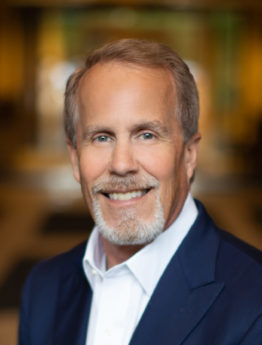 Kevin Crutchfield
Kevin Crutchfield
Compass Minerals, Overland Park
Southwest isn’t far from Coal Country USA, so when Kevin Crutchfield was working his way through Virginia Tech, a co-op program with a local coal company was his ticket to classroom education and practical work experience. After he secured his degree in mining and minerals engineering, he stayed on as a maintenance coordinator, then started his rise through the management ranks. “I grew to understand how to treat people and developed an awareness of my ability to coach and lead others,” he says, and has been able to apply those skills with several companies. In 2019, Compass Minerals came calling, and “I knew it was the right opportunity at the right time,” he says. What drew him to Kansas? “I find the core purpose of the company inspiring, something each and every employee can get behind—through the responsible transformation of Earth’s natural resources, we create products that help keep people safe, feed the world and enrich lives every day,” he says. “I haven’t looked back. I’m energized by the evolution of the company, including the planned addition of lithium into our essential minerals portfolio, making Compass Minerals stronger than ever before.” Compass Minerals is a global provider of essential minerals that help solve nature’s challenges for customers and communities—road salt for use in winter, plant nutrients for agriculture and perhaps soon, even a brine from that addition of lithium he mentioned; if successful, it will help produce batteries for electric vehicles.
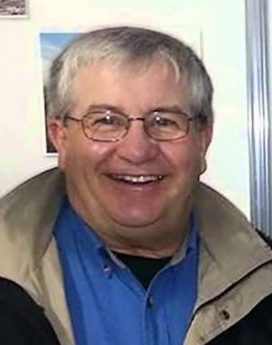 Jim Deibert
Jim Deibert
JKD Harvesting, Colby
Jim Deibert’s early exposure to agricultural economics was a first-hand experience, observing his father farming on rented land near Hoxie in northwest Kansas. It’s tough enough to make a go of farming when you own the land. It’s tougher when you don’t. When it came time for college, Deibert made the 32-mile trek to Colby Community College and looked for work. “I took a part-time job with a custom harvester,” he says, “and here I am. … This was a career that I could afford.” “Here” is with JKD Harvesting, a custom-cutting operation that trims a 1,500-mile swath from southern Texas to North Dakota each year, following fields of wheat as they ripen from the south to the north. Across his career, one constant challenge has been securing a crew that can tolerate the demands of custom cutting, especially the long hours in the field and the close-quarters living out of RVs for months at a time. Reaching those kinds of independent souls has been easier during the digital age. “I use a lot of different methods to get a crew—word of mouth, the Internet and Facebook,” he says. Those technological advances have also spilled into his operating model. “We have changed so much since I started—yield mapping, GPS steering, cell phones, my John Deere programming,” Deibert says. “The precision ag in harvest is a major factor for my farmers.”
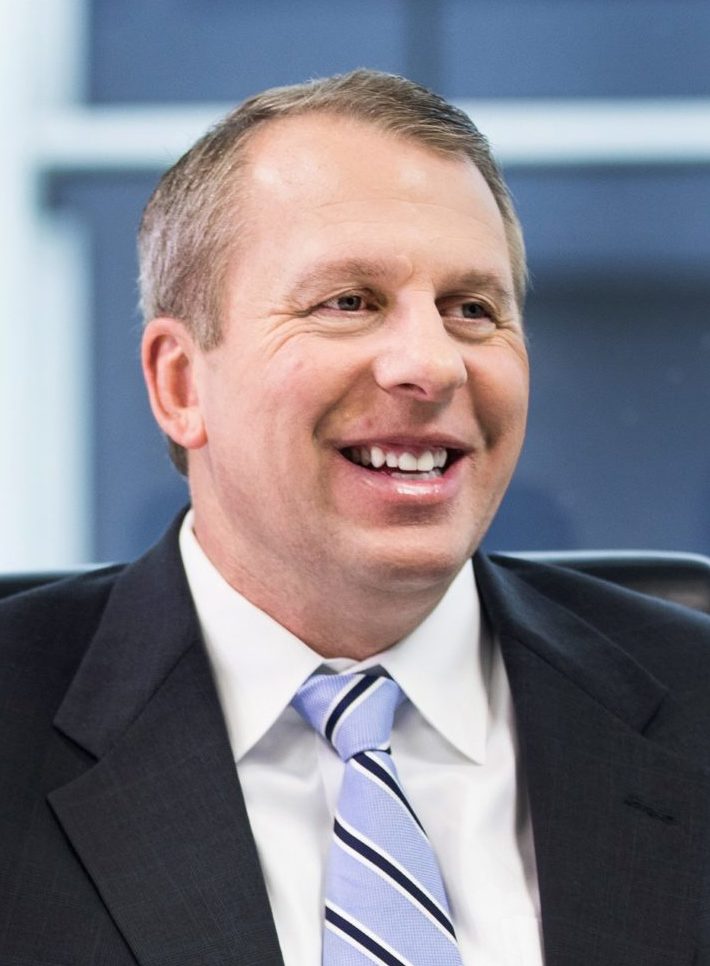 Ron Draper
Ron Draper
Textron Aviation, Wichita
Is any CEO in Kansas better-positioned to lead his company out of the pandemic era than Textron Aviation’s Ron Draper? It would be hard to think of one, if the back orders amassing since 2020 hold up. The maker of two iconic general-aviation brands—Beechcraft and Cessna—saw its backlog surge by nearly $700 million in the second quarter of 2021, to $2.7 billion. A year later? More of the subsonic boom: As of January, that figure had swelled to $4.1 billion. Now, like a lot of other manufacturing executives in the nation, Draper and his team must attack that opportunity while confronting a snarled supply chain and a tight labor market. Already, Textron Aviation’s facilities in Wichita and Independence, Kan., account for more than two-thirds of its global work force of more than 12,000 employees. That puts it within striking distance of Spirit AeroSystems, which makes jetliner fuselages and other large-craft components, in the bid to claim the title of Wichita’s Biggest Employer. Draper, an Army veteran who piloted UH-60 Blackhawk helicopters, has been with Textron since 1999 and became CEO of the aviation division in 2018. A West Point graduate before starting his military service, Draper also earned an MBA from Wichita State in 2001, during a previous tour of duty in the Air Capital. Once he’s done punching the clock at the day job, Draper is engaged in the civic scene through involvement with the Greater Wichita Partnership, as well as industry organizations.
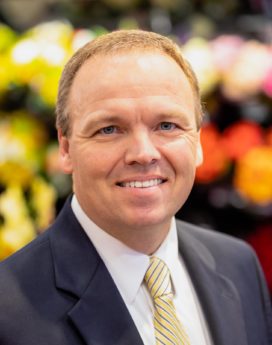 Steve Dreher
Steve Dreher
Dillon Food Stores, Hutchinson
Steve Dreher knows that the key to success is having the right people leading the troops in the field. In the grocery business, that means store leaders. Dreher, president of Dillon Food Stores, developed a healthy respect for those leaders after taking his first job with the company at a store in his hometown of Hays back in 1985. “I watched and admired the influence the store leader had on the associates and customers, along with the respect he earned within the community,” Dreher says. He’d seen the same traits in his father, and even though he was just getting started at Fort Hays State University, “I felt a career with Dillons would provide me the opportunity to do the same and set an example for others.” Various leadership roles presented themselves over the years, including that store leadership position—”still the position I hold in the highest regards to this day,” Dreher says. Now leading a company more than 100 years old, with close to that many stores in the Sunflower State, he and his team are wrestling the nation’s inflationary surge. “We continue to identify new ways to execute our business more efficiently and effectively in order to reduce unnecessary costs from the business,” he says. “This includes our focus in technology (especially as it relates to digital), which not only simplifies the work experience for our associates, but provides a seamless experience for our customers. We are investing where it matters most to enable our customers to stretch their food dollars.”
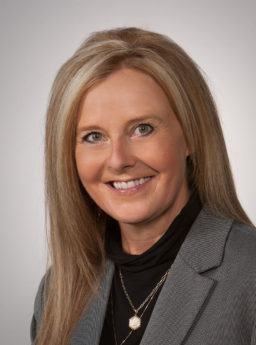 Lona Duvall
Lona Duvall
Finney County Economic Development, Garden City
If the American Dream had a hometown, it might look a lot like Garden City. Few communities in Kansas have experienced similar levels of demographic change seen in that Finney County community over the past 20 years, with immigrants flocking in to fill thousands of jobs in the regional meat-packaging sector. They came for those jobs, but they aren’t settling for that work. “Newcomers to the Garden City region often bring with them a strong entrepreneurial spirit,” says Lona Duvall, who leads the county’s economic-development agency. “Finney County is in the upper quartile of counties nationwide for upward mobility from the first generation to second,” she says, “Opportunities abound in our region for those who come to the area with a good work ethic and a desire to better their economic futures.” Duvall, a native of Leoti in western Kansas, made her own way to Garden City more than 20 years ago and spent much of her career in banking. “I have always enjoyed helping businesses grow and prosper,” she says. “My career in the banking industry allowed me the opportunity to do just that” in a wide variety of business sectors. It also revealed ways, she said, that “the public sector can set the climate for the private sector to be successful. It was a logical next step for me to engage in public sector work to create the best business climate possible in Finney County,” which she says is a progressive agricultural community, with “significant opportunities in the value-added agricultural sector.”
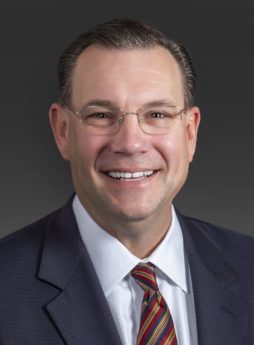 Brad Elliott
Brad Elliott
Equity Bank, Andover
Brad Elliott left his native Colorado for McPherson College, where he arrived as a 5-foot-11, 135-pound point guard for the basketball team, and within two years was a 6-foot-3, 220-pound tight end. So, yeah, Elliott knows a few things about rapid growth. In the business world, he’s brought that to Equity Bank, headquartered in Andover. FDIC online records don’t predate 1992, but that was seven years after Elliott launched Equity, and total assets then were $13.3 million. Today? They’re at $5.4 billion. Rapid, indeed. Some of that success, he says, runs right back to McPherson. “I got a great education at McPherson College, but the best thing about a small college is, you have to be able to articulate your thoughts to professors and be challenged at a very young age.” That instilled confidence to join a powerhouse company like Koch Industries after college and not be intimidated. But the path to a finance role started with a college internship at a local bank, then to Sunflower Bank, where he was inspired to start one on his own. “I thought that if God gave me an opportunity to start a bank, then that’s what I was supposed to do. I put $50,000 down, went out and raised capital, and bought a $30 million bank.” Since forming a holding company to pursue acquisitions, he’s done 20 M&A transactions, gone public, and now runs the fourth-largest bank in the state, with 70 branches in Kansas, Missouri and Arkansas, and has opportunities to make more acquisitions.
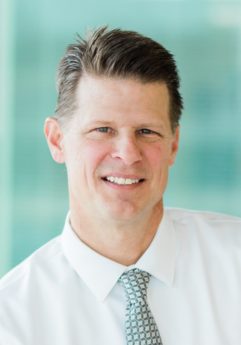 John Gaar
John Gaar
Finkle + Williams Architecture, Overland Park
Inspiration and determination helped John Gaar on his rise to design-firm ownership, but when the time came to reassert his place in the region’s design space, a past connection and some fortunate timing were keys to success. The Westwood native, who was intrigued by design in high school and inspired by iconic names in architecture while studying at K-State, rose to the ownership of a Kansas City firm during a 22-year run. When the strategic focus of that firm changed, Gaar connected with Greg Finkle, partner in a growing Overland Park firm, and came aboard. There, Gaar says, “I was able to expand their markets and complement their existing ones.” That latter part is key, he says, because architecture firms require “many skills to be successful, which is why many practices are like marriages that require at least a pair of professionals that are good in their particular area.” Working in Kansas City, he says, means firms here are able to embellish a city that owes much to the entrepreneurial successes of names like Hall, Nelson and Kauffman, whose philanthropy contributed much to the arts. “The commercial success, influence of the arts and strong regional education,” Gaar says, “are leading factors that continue to drive the quality of architecture firms in Kansas City,” where “large businesses, urban growth and entrepreneurs make it possible for all sizes of architecture firms to thrive.”
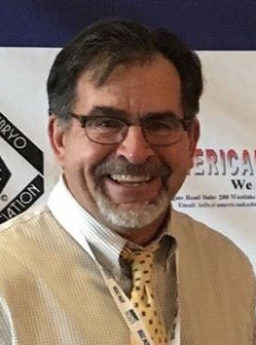 Thad Geiger
Thad Geiger
Geiger Cattle, Troy
Kansas roots don’t run much deeper than with Thad Geiger’s family in Doniphan County—his mother’s side arrived in 1854, and his dad’s in 1858 before Kansas was even a state. “My young grandchildren are the eighth and ninth generations of my blood to live in northeast Kansas,” he says. Despite that ancestral link to the land, his own farming ties were limited, first by the economic conditions of the 1980s farm crisis after college, then a 25-year career in banking. “I actually never aspired to be a banker; I simply needed a job,” he says, but that work gave him “the satisfaction of helping guide the bank and helped many folks through what was arguably the toughest time in rural America since the ’30s.” Still, he was able to grow his own farming operation, spending evenings and weekends on tractors or tending cattle. He also was on the state’s Board of Agriculture and spent two years advising and doing development and diplomacy for Kansas agriculture—all while operating the farm. Geiger Cattle is the livestock side of the farm he co-owns with his son, Nathan, selling breeding stock to cattle producers in the four-state area. Geiger, a two-sport athlete in college, is among a vanishingly small group of farmers with a college degree in English literature. But if that irregular path has taught him anything about ag, its challenges and its opportunities, it’s that, right now, he says, “I think it’s a great time to be a Kansas farmer.”
Jeff Gentry
INVISTA, Wichita
Jeff Gentry leads what might be the biggest company you’ve never heard of: A Wichita-based subsidiary of Koch Industries, INVISTA. Like its parent, it tends to keep a low profile, but that’s hard to do for a company known as the world’s largest enterprise producing integrated fibers and polymers. Gentry became the chief executive there in 2007, when he succeeded Jeff Walker, after previously serving for a year as chairman of INVISTA’s board of directors and as president of Koch Mineral Services. He came to work for the Koch empire in 1993 and was elevated to its board of directors in 2005. Like many of the parent company’s corporate offspring, INVISTA doesn’t make products that are consumer-facing, but they are fundamental to consumer lifestyles. In addition to polymers and fibers, it makes chemicals and fabrics that you might find in clothing, carpets, cars and trucks, backpacks, hiking boots, scuba-diving gear—it’s a long and impressive list. And on the industrial side, its polypropylene products go into medical equipment, food packaging and other uses not immediately apparent to most consumers. The company’s global footprint is bolstered by strategic-cooperation agreements with foreign companies, including a significant one reached earlier this year with the China Pingmei Shenma Group. Like its other Koch corporate kin, INVISTA is frequently recognized for its environmental stewardship.
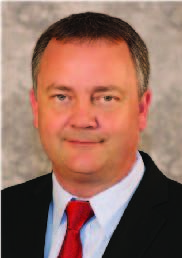 Darren Hawkins
Darren Hawkins
Yellow Corp., Overland Park
Darren Hawkins didn’t have to look far for examples of leadership in his life—they were right there in his childhood. His father, who entered the Army as a private, rose to brigadier general and was, Hawkins says, “the ultimate example of determined leadership.” And he recalls his grandfather as “a larger-than-life man who could play any instrument, fix or build any imagination, and when he was in the huddle with you, anything was possible.” That’s some of the leadership DNA Hawkins provides as chief executive at Yellow Corp. in Overland Park. Yellow is a $5.1 billion trucking company that spans North America with the second-largest less-than-truckload network in the U.S. With a massive staff of 30,000 freight professionals, Yellow operates more than 300 terminals coast-to-coast, pushing north of 17 million shipments to companies large and small. Hawkins, a 30-year veteran of the industry, became CEO in 2018 and has his team firing on all cylinders with major investments—with the largest addition of new trucks in its history, for one. And to help develop the next cohort of drivers—a crying need in a sector already crippled by shortages, Yellow has opened 16 new Driving Academies. The company he leads is the nation’s fifth-largest trucker, and in addition to hauling, it includes a third-party logistics brokerage. With that many irons in the fire, what’s the best business decision he’s ever made: Simple, he says: “Hiring people smarter than me.”
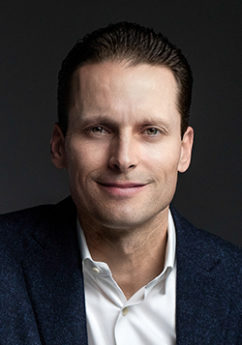 Jason Hendricks
Jason Hendricks
Performance Contracting Group, Overland Park
A pair of seasons in the minor leagues turned out to be plenty for Jason Hendricks, but when his baseball career was over, he went major-league in another field: Construction services. And when he made the move, he took some lessons on both leadership and teamwork away from his baseball experience. Today, he’s the chief executive for Performance Contracting Group, the parent for a suite of seven companies that perform services in construction and abatement, fire-protection systems, demolition, insulation and more. He joined PCG in 1998 as a branch controller in Los Angeles and quickly ascended the ranks to chief operating officer and, in 2019, president of the employee-owned company. While playing baseball at the University of Arizona, Hendricks was also batting cleanup on the books, earning academic All-America honors for the Wildcats. That was good enough to draw the eye of major-league scouts, and the Montreal Expos came calling, making him a 13th-round pick in the 1998 draft. He hit 17 dingers in the minors and knocked home 60 runs while batting .240. With PCG, his team numbers more than 8,100, operating in 40 offices nationwide. Engineering News-Record, the construction and design sector bible, consistently ranks PCG companies among the Top 20 when it issues its annual rankings for the best companies in the business.
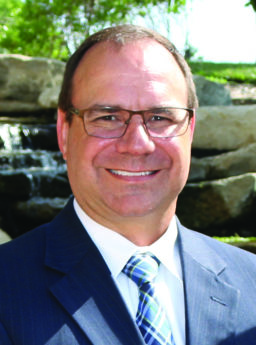 Travis Hicks
Travis Hicks
TriCentury Bank, De Soto
Looking for a real-estate loan? Who better to solicit than a banker with his own passion for property development and investment? Travis Hicks has been able to leverage that attribute to turn a tiny, struggling rural bank into a growth monster in the highly competitive Johnson County market. A native of Shawnee with a long resume in banking, he helped relocate a bank from Simpson, Kan., in 2014 and rebranded it as TriCentury. By banking standards, it’s still a community bank, with $133 million in assets, but that’s up 3,325 percent in eight years. Since graduating from KU he’s had his hand in finance and real estate and has his own active development portfolio. That helps him relate to clients and understand their needs. “Banking, and specifically lending, is a great fit with a blend of real estate and finance, which means I love what I do on a daily basis.” Competition is a part of the landscape for any business, he says, but “I believe there will always be a niche for knowledgeable and responsive community bankers. Kansas City is a large market, and with our market knowledge and service, we are able to compete successfully with almost any bank. Community banks have an advantage over larger institutions with our ability to make a decision locally and decisively.” Perhaps it’s not surprising then that TriCentury has retained links to its north-central Kansas roots. “We do have some very loyal clients left from Simpson,” Hicks says. “In today’s age of electronic banking, we are able to bank most any market.”
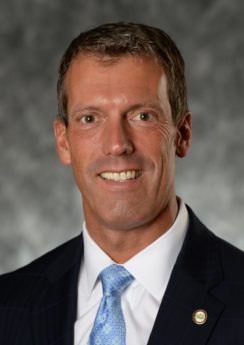 Terry Holdren
Terry Holdren
Kansas Farm Bureau, Manhattan
Terry Holdren’s roots run four generations deep in Hamilton County, in a vast, arid plane that simply dares a farmer to succeed. Which is sort of fitting: In his current job as the Kansas Farm Bureau CEO, Holdren works to help farmers even the odds against challenges. He grew up in Syracuse, where his parents ran the weekly newspaper and he’d occasionally see notable figures like Sen. Bob Dole swing through town. After high school, he was off to Lindsborg’s Bethany College for a degree in history and political science—”which leaves few options other than law school,” he cracks. He dabbled in trust banking and served as an assistant county attorney in Riley County following law school. KFB, though, was where he knew he should be when it was seeking a government affairs staffer. “Back then, I was in awe of the ability of a state-wide organization to accomplish big (and little) things that made a real difference in the lives of every-day citizens and wanted to use my education and ability to try and help,” Holdren says. “Kansas agriculture today faces challenges on multiple fronts (which isn’t at all about which party is in power),” he says, including punishing inheritance taxes, raising awareness of farm-based environmental stewardship, securing labor and promoting rural innovation. He sees technology as part of the solution, producing greater yields with fewer inputs. “We can do that in a way that is sustainable (financially and environmentally),” he says, “and will create wealth among rural families across the country.”
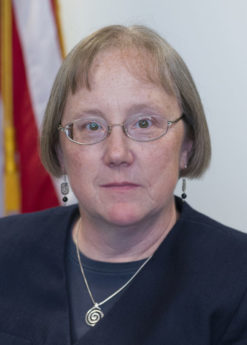 Laura Howard
Laura Howard
Kansas Dept. of Aging/Child-Family Services
Managing a state cabinet-level agency is a big job. Managing two, at the same time? That takes a Laura Howard. Upon taking office in 2019, Gov. Laura Kelly quickly turned to Howard to take over the leadership of the Department of Children and Families. Kelly took office with serious questions about how grants were being issued through DCF, and she saw in Howard someone who knew the ins and outs of social services; Howard has a reputation in the statehouse for being an expert in that field. At the same time, Kelly put Howard in charge at the Department for Aging and Disability Services. There was a reason for the double-duty: Kelly wanted someone ready to hit the ground running if she could obtain legislative approval to merge the two agencies into one. The Republican-controlled Legislature has blocked Kelly at every move in three successive sessions, leaving Howard in charge of both for now. Human-services spending accounts for nearly a third of the state’s $18 billion annual budget, and a large share of that goes to fund DFC and the aging department. This isn’t Howard’s first dance in the public sector. Before answering the governor’s call, Howard was director of the Public Management Center at the University of Kansas.
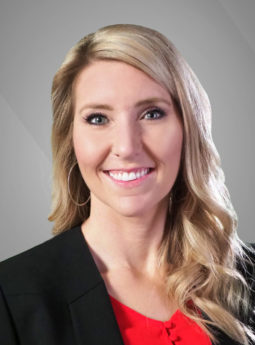 Molly Howey
Molly Howey
GO! Topeka
In the high-stakes game of economic development, it’s nice to draw an inside straight. Molly Howey holds something like that hand as president of GO Topeka, the state capital’s ED agency. “We have natural assets in our geographic location that lend themselves to logistics and have deep roots in animal health and agriculture,” she says. She believes those sectors, plus aviation, position the city for growth. Case in point: Silicon Valley-based Plug and Play’s decision to site its animal-health unit in Topeka, something she calls “huge for the whole region. Plug and Play will bring to Topeka dozens of vetted startups every year that are in some way through animal health and ag-tech. I believe our region has a great shot at keeping and growing a good number of those companies.” Other assets include a new 12,000-foot airport runway and plenty of open land for development. A Topeka native, she got into this field by following a marketing track. “Economic development has major components of marketing—it’s just marketing a community as the product. I got into economic development, not really knowing what I had jumped into. I have learned a lot along the way and have come to love the breadth and depth of knowledge I can strive for within the industry.” Her work has helped the city land a Walmart distribution center, as well as expansions at the Mars candy production facility.
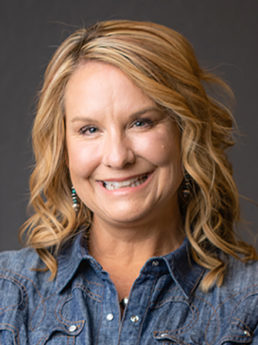 Heather Jantz
Heather Jantz
MJE, Montezuma
The Big City is all fun and games when you’re young. Then life hits. For Heather Jantz, it came after moving to Kansas City and working as a technical writer. “My father approached me about coming home to the family business” in western Kansas,” she says. “It was hard to leave a city that I loved, but I knew I wanted to raise my children in small-town America,” she says. “Montezuma is a progressive community, and MJE’s commitment to building first-class feed yards and dairies that feed the world called me home.” That, folks, is how someone with a degree in rhetoric and composition ends up in the ag-infrastructure business. What she learned at K-State wasn’t simply how to argue, but how to think—which comes in handy when innovation is a must. She and her brother now control the business Max Jantz founded in 1974 with just a tractor and towed earth scraper, and it’s one of the bigger enterprises in Gray County, halfway between Dodge City and Garden City. She’s the COO; Aaron is the CEO, and their enterprises consist of two units, MJE, a construction business that primarily builds agricultural facilities throughout the Midwest, and MJE Livestock Equipment, serving feed yards, dairies, and ranchers nationwide. Cattle comfort and handler safety are huge priorities for livestock producers, she says, and their products help livestock producers do more with less. “Calm, happy cattle are easier to process safely and efficiently,” Jantz says. “The meat is better too!”
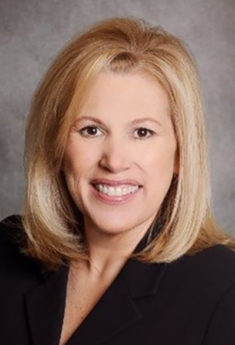 Coleen Jennison
Coleen Jennison
Cox Communications, Wichita
Coleen Jennison is living proof that the decisions we make early in life, while not always determinative, can set the table for success. She made a big one in high school while being recruited by Benedictine College, and “it was an easy decision for me,” Jennison says. “The opportunities I’ve had in my career began with the choice to attend Benedictine.” Those opportunities have taken her to the top executive’s duties in Kansas for Cox Communications, one of the nation’s largest providers of Internet, phone and cable TV services. After earning her journalism degree, she worked for a Washington lobbying firm, but missed the Midwest, so she came to the Capitol in Topeka and did a stint as chief of staff in the House before joining Cox as market vice president in 2015. “We absolutely love living in Wichita,” Jennison says. “What was most surprising is that it has all the offerings of a big city, with a smaller-town feel.” When Cox elevated her to regional manager, it was an easy call to stay in River City. The firm’s network has withstood additional demand created by remote working/studying during the pandemic, helping keep businesses and schools operating. “Despite significant traffic increases, our network performed well during the pandemic and continues to perform very well overall” to meet those needs, Jennison says. A $77 million capital investment in the state, she ways, also served to meet that added load.
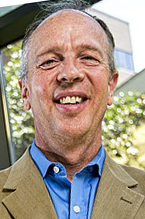 Russell Johnson
Russell Johnson
LMH Health, Lawrence
Hospital executives waging a battle against a global pandemic have been consumed by the here-and-now of daily sub-crises, but Russ Johnson knows that this will not be a short-term fight that goes away when case numbers decline. “Work force is our No. 1 concern and will be for the next three years,” he said, not long before the omicron-variant spike that started last fall. “It is challenging to meet the needs of the patients we serve with the work force that is already strained, frustrated, and weary,” Johnson said. “We have had to provide cautious constraints on our ability to accept patients from outside of our primary service area as other hospitals around us have sought to move patients to other hospitals.” Johnson, who became CEO in 2016, hails from Merriam in Johnson County. His Lawrence-based health system’s main feature, Lawrence Memorial Hospital, admits nearly 6,000 patients a year and is both a major employer and an economic driver, with revenues of more than $1 billion. That’s a modest sum compared to some of the larger medical centers that dominate the regional market, but LMH and other community hospitals play a vital role in relieving stress on the overall system. Johnson has spent nearly four decades in health care, much of that in leadership roles, and came to Lawrence from a leadership role at Centura Health in Denver. His degree in management and economics came from the University of Tulsa. He went on to secure a master’s degree in health-care administration from Washington University in St. Louis.
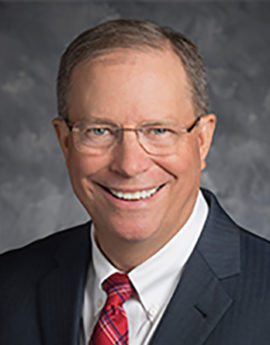 Robert Kenagy
Robert Kenagy
Stormont Vail Health, Topeka
Everything about Robert Kenagy’s educational path indicates a strategic approach to where he is today—CEO of one of the state’s biggest health systems in Stormont Vail. From his business degree at Wichita State, to his medical degree from the University of Kansas, to his master’s in medical management from Tulane University, each step of his instruction has been a building block to leadership. He now oversees a system whose flagship hospital in Topeka admits more than 23,000 patients a year and generates annual revenues of more than $2.3 billion. The numbers reflect the hospital’s role in the state’s two-year fight against a global pandemic. In that span, it admitted 3,800 patients and has provided more than 102,000 COVD-19 vaccines. Kenagy spent 22 years as a family physician, giving him the twin perspectives of care provider and executive administration. His career stops include Via Christi, the Wichita Clinic, and St. John Health System in Tulsa before coming to Topeka in 2016 as chief medical officer at Stormont Vail. That set the stage to succeed Randy Peterson in the CEO’s chair in 2019. In addition to leading a system with clinics that serve much of northeast Kansas, Kenagy is a member of the American Association for Physician Leadership. His civic engagement includes a seat on the board of Topeka’s economic-development organization, GO Topeka, and the boards of the Topeka Community Foundation, Christ’s Hospital Corporation and the Kansas Hospital Association.
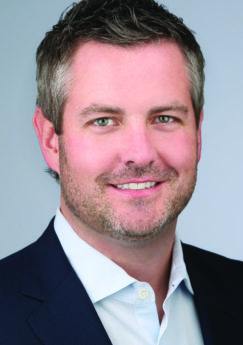 Michael Kulp
Michael Kulp
KBP Brands, Overland Park
Nobody saw a global pandemic bearing down on America before 2020, but nobody who has followed KBP Brands’ growth under CEO Michael Kulp should have been surprised that the Overland Park fast-food behemoth would wrap up that year larger than it was at the beginning. In fact, it was a milestone year, as acquisitions drove the count of KFCs and Taco Bell units to 800 (in 28 states) and KBP surpassed $1 billion in revenue for the first time. Some of that was produced by a surge in demand for drive-through food during local lockdowns, but those same efforts to control the virus also restricted in-store dining for large chunks of the year. Acquisitions have played a huge role in KBP’s growth over the years, and it picked up 65 more stores in that first pandemic year. Kulp has been with the company since 2001. Reflecting on the firm’s success strategies for Franchise Times, he said the key to a successful acquisition strategy is being disciplined and process-driven in determining asset quality. It helps, as well, to have the capital ready to bring to bear when an opportunity arises, he said: “There’s nothing more dangerous in a sale process than it dragging forever.” Kulp, who earned a degree in marketing from the University of Colorado-Mesa, leads an organization with more than 15,000 employees and serves on multiple industry boards.
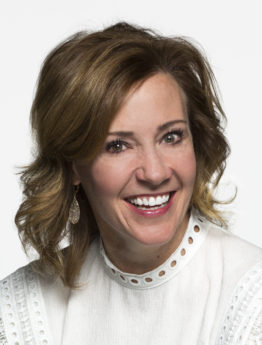 Ali Mahaffy
Ali Mahaffy
Signal Theory, Kansas City
Al Higdon, Vaughn Sink and Wendell Sullivan once were iconic names in Wichita with the combined influence of their advertising agency and civic engagement. But 50 years have passed since its formation, and today, rebranded, Ali Mahaffy has her hands on the steering wheel at Signal Theory. Or half of it, anyway, with co-CEO Jack January in the Kansas City office of a now-regional concern. Mahaffy is a Newton native and third-generation Jayhawk who came to advertising by chance as a sophomore. She still recalls the influence Tim Bengtson’s course in Elements of Advertising. “He made me fall in love with the craft and the industry,” she says. “I knew I had to be a part of it from that point.” After school, she came to Kansas City—the Kansas side, naturally—and was a self-described advertising nomad for nine years. “Then I found the team at Signal Theory,” she says. “I found a place that matched my values—a place where I could be myself, where I could grow and I could help others succeed. When you find that, it removes a lot of obstacles and creates more space for success.” The firm is still deeply tied to Wichita—”We do a good job of keeping the (turnpike) in business,” she says, and its people, clients and values remain consistent across both offices. The values espoused by Higdon still play a role, she says. “His foundations of civic engagement as well as building an incredible place to work inspire us to continue to create great work in a great work environment,” she says.
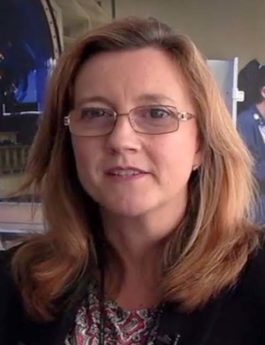 Samantha Marnick
Samantha Marnick
Spirit AeroSystems, Wichita
Samantha Marnick—call her Sam—is the British-born COO and president of the commercial division for Spirit AeroSystems, the biggest employer in Wichita. With an estimated 9,500 people on the payroll there, the company’s impact on the economy of south-central Kansas is understated: Economic-development officials believe that every production-line job in Wichita aviation creates another at a vendor company somewhere in the region. Marnick’s influence on Spirit is also understated by her title; as COO, the company says, she’s responsible for leading growth initiatives in M&A activity, supply-chain management, fabrication, research and technology, aftermarket, and regional and business jets. For starters, that means oversight of security operations, business writings, information assurance, trade compliance, public affairs, communications, community relations, diversity, ethics, compliance and board relations. She’s been with Spirit since 2005 and has had a number of leadership roles at the vice president and director levels. Before that, she worked in both the U.K. and U.S. for a large HR consulting practice. At this point, Marnick could probably write textbooks for any number of advanced business classes but continues to work on her own MBA in international business. Her undergraduate degree came from the University of Salford in Corporate Communication Strategy and Management.
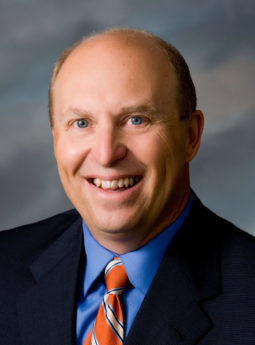 Lynn Mayer
Lynn Mayer
Citizens Bank, Marysville
Lynn Mayer was born in Marysville, grew up on a grain and cattle farm nearby, finished high school there, and headed off to Manhattan, where surely a degree in grain milling would be calling him. Fate intervened in the form of a night manager opportunity at a savings and loan after his sophomore year. “After a summer of pondering things,” he says, “I changed my major to business finance.” Thus began the journey to a 38-year career with Citizens State Bank in his hometown. “After graduation, this is the only real job I have had,” he says. “My father was killed in a farm accident in 1986, and my brother and I farmed the family farm for two years before deciding that working full time and farming full time doesn’t leave much spare time.” He has managed the family farm ever since, while banking, serving as city treasurer for 26 years, and he currently sits on the boards of four local charitable foundations. “I love living in a small community, the beautiful sunrises and sunsets, friendly neighbors, being able to go golfing in 15 minutes if you want to, or go fishing at the drop of a hat,” he says. Also going for the town: “We live in a sweet spot in Kansas, two hours from KC and Omaha, Neb., and one hour from Manhattan, and Lincoln, Neb., in a fertile area of Kansas made for agriculture.”
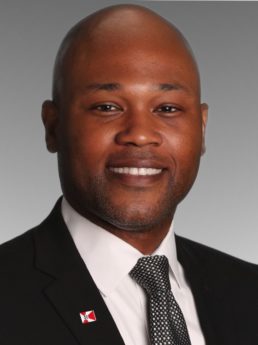 Jonathan McRoy
Jonathan McRoy
Kansas Leadership Center, Wichita
For Jonathan McRoy, leadership is about living your values. Long before he became a Kansan, his own values were shaped by family, country and service. Born in Miami to a Jamaican immigrant, he was introduced early to principles like equality, citizenship and voting rights. Those principles, he says, allowed his mother to improve her economic condition for herself and her son, McRoy says. “Observing her and what these democratic ideals did to enhance our lives, I wanted to become a part of an organization that would preserve, defend and protect them,” which led him to the Air Force, to tours of duty around the world, and eventually to McConnell Air Force Base in Wichita. He stayed there following his 20 years of service, and has fully engaged what it means to exhibit leadership skills. One venue for that is through his association with the Kansas Leadership Center in town; another is through service on the Kansas African American Affairs Commission; yet another is through his day job at Textron Aviation. A Six Sigma black belt, he has a master’s from the University of Management and Technology, is a graduate of the Advanced Intercultural Management program at Notre Dame’s Mendoza School of Business. On top of all that, he’s now working on a doctorate in leadership. Wichita, he says, has been a great fit. “As an Air Force veteran from a large city who’s traversed the globe, I saw the potential Kansas has to be more diverse and increase the state’s cultural richness,” he says of his motivation to join the KAAAC. His interest in issues that affect black communities in Kansas, he says, such as crime, poverty, health and education, led him to the commission. There, he says, “we are working hard to be a strong liaison for the Governor to the black community in Kansas.”
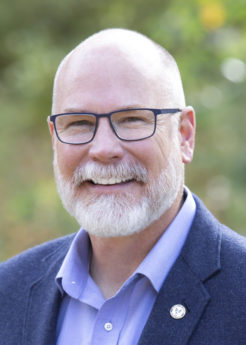 Scott Metzler
Scott Metzler
UpFront Leadership, Newton
Scott Metzler was the little kid who didn’t dream of becoming a fireman. So, of course, he had a nearly 30-year career with the hometown Newton Fire Department, the last seven as chief. “I like to say I was an accidental firefighter,” Metzler says, following an uncle onto the department after dabbling in EMT training in the 1980s and finding a passion. The department beat the ambulance service with a job offer as a paramedic, and he was on his way. Over the next three decades, the department battled fires, ice storms and flooding, and Metzler noted a profound change. “Over the last 10 years or so, the wildfire season has lengthened and gotten much more severe,” he says. “We’re seeing catastrophic fire weather conditions that were rare or unknown just a decade before.” His 2019 retirement opened the door to a second career in leadership development and pursuit of a Ph.D. in leadership and change. During his first career, “our senior leadership team realized that we could either spend our limited resources trying to address all of the challenges that kept cropping up, or we could spend those same resources developing strong leaders who could address the problems we knew about, and head off the ones that weren’t yet on our radar.” That still inspires him today. “The idea that great leaders build great leaders is so powerful,” he says, “and my hope is to share some of what I’ve learned about leadership through the painful process of trial and error” to help other leaders make things better for people.
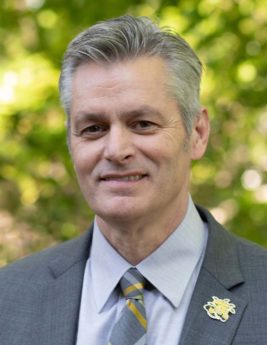 Richard Muma
Richard Muma
Wichita State University, Wichita
In Kansas higher education, Rick Muma is a man with a unique mission. He leads the only urban public research university in the state, and that, he says, “brings with it a powerful responsibility and opportunity to serve and support our community—which includes, of course, the business community. One of our priorities focuses specifically on fueling the talent pipeline for Kansas business.” Born in Wichita and raised in Houston, Muma knew early on that human sciences and health care held a special attraction. Inspired by a high school teacher to explore the position of physician assistant, Muma found his passion in an emerging field. “The more I learned about it, the more it seemed to fit my academic interests,” he says. His administrative journey started at the University of Texas’ medical school in Galveston, where he developed an AIDS curriculum for medical and physician-assistant students. There, he says, “I had a mentor at the time who told me that I should always seize an opportunity when it presents itself. So, when leadership roles presented themselves, and they were ones that I felt fit my skill set and strengths, I decided to go down that path.” More than 25 years ago, a faculty position opened up at WSU, and Muma jumped at the chance to return and build a career and home. In department chair roles, he helped create undergraduate degrees in health management and health sciences, and a graduate degree in aging studies. From there, he rose to university executive vice president, then provost and, last year, president.
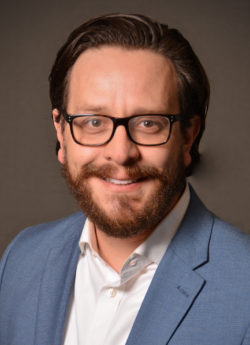 Shawn Naccarato
Shawn Naccarato
Pittsburg State University, Pittsburg
Gov. Shawn Naccarato? Attorney General Shawn Naccarato? Those titles might have a nice ring to them, but they were not to be: Shawn Naccarato’s bride married him on the condition that he did not pursue public office. But that doesn’t mean he couldn’t make a significant impact on public policy. He’s the chief strategic officer for Pittsburg State University, which is both his undergraduate alma mater and an economic engine of southeast Kansas. A native of nearby Mindenmines, Mo., he was inspired to attend law school by a high school teacher impressed with his work on a persuasive-speech assignment. Law school at Mizzou and a master’s in public administration launched his career in the attorney general’s office. A growing family prompted him to explore a legal role at PSU, and after interviewing for it, he was asked instead to be director of planned giving. He took that role, then moved into government affairs and community relations, then the strategic posting. His work helped produce PSU’s Center for Innovation and Business Development, and he’s been a key to the university’s growing prominence in polymer research. That, he said, “gave me the opportunity to build out the community side, combining all these different partnership arrangements with state and regional agencies into one.” The polymer research and commercialization is particularly significant, he says. “That expertise in the polymer space is a distinguishing feature for us.”
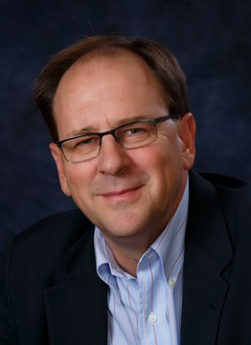 Tim Penner
Tim Penner
Harper Industries, Harper
Proof that it really is a small world: Nebraska native Tim Penner has a wife from Kansas. Not unusual, right? Except they met each other in … Bolivia, where he was on an agricultural-development assignment. They moved back to Kansas, and 30 years ago, he started working at what is now Harper Industries. In 1998, he and the leadership staff bought the company and took it from $8 million in revenue to $38 million. It now employs 160—a significant economic anchor in a town of 1,300 people. It’s a diversified manufacturer of agricultural equipment, turf equipment and hydraulic truck equipment, and that variety, he says. “has been very beneficial in providing consistent year-round work for our employee body,” enough to support double-digit growth almost every year for the past 23. “Manufacturing is alive and well in Harper, Kansas,” Penner says. “We have an excellent work force, with many folks who are native to this area and want to live in and raise their families in rural America.” Driving that, he says, are factors like “work ethic, ingenuity, and dedication to making hard jobs easier are themes that have driven Harper and will continue to drive Harper in the years ahead.” Tech advances are changing the worker needs, but as a key employer in the county, he’s able to staff roles in product development, engineering, fabrication, welding, painting, assembly, service, and sales and marketing.
John Petz
Irsik & Doll, Cimmaron
If you like a nice ribeye, fresh grilled and medium-rare, or perhaps a burger with all the trimmings, or Grandma’s Sunday pot-roast dinners, take a moment to thank John Petz. The chairman of Irsik & Doll spent the better part of 20 years helping a large cattle-feeding concern become a very large cattle-feeding concern as president and CEO of the Cimarron-based company. That’s in Gray County, that big, flat space separating Garden City from Dodge City, and thanks to Petz and the I&D team, it is now a cornerstone of beef production for the state—one of the biggest Kansas exports, as it happens. The state Department of Agriculture says the beef cattle is unrivaled as the single largest sector in the state’s ag industry, with cattle and calves generating nearly $9 billion in cash receipts each year. That amounts to 55 percent of all farm output. Petz, who earned a business degree at Wichita State University and still serves on its board, produced a history of the 62-year-old company for its Web site, offering his 30,000-foot view on what has made I&D a powerhouse in cattle feeding, grain handling and commercial feed mill operations: “The founders’ interest in being a conservative organization devoted to agriculture, while not compromising integrity,” he wrote. “The reputation, financial stability, long-time customer base, shareholder retention of capital and a team of dedicated employees have contributed to the entire growth of the company and how the company will operate into the future.”
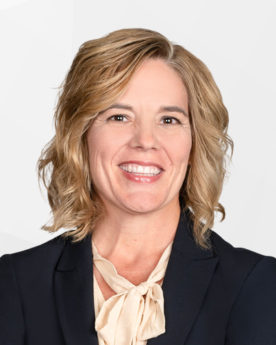 Julie Pierce
Julie Pierce
Henderson Engineers, Lenexa
As a young girl, Julie Pierce was fascinated by Lego blocks and erector sets, but some time with Lincoln Logs would have been appropriate: She would go on to become an engineer, and something of a pioneer, at that. “I was the first female engineer ever hired at the firm where I worked when I first joined the industry,” she recalls. But the industry is changing, and for Pierce, now at Henderson Engineers, the difference is stark. “Women currently make up around half of our engineers in the Kansas City area,” she says. “Such progress is worth celebrating, but there’s still work to be done industry-wide to achieve equity and equality for women and other underrepresented groups, and we’re doing our part to ensure everyone has the same access to opportunities and feels at home at our company and within the industry.” Born in Kansas City, Kan., she spent time in Illinois and the Wichita area before college. “My parents encouraged me to go into engineering, but I didn’t know what I wanted to specialize in until I was at KU,” she says. “Being at the right place at the right time with the right faculty drew me to architectural engineering. Today, I still find the opportunity to combine art and science to be very rewarding.” At Henderson, she’s been involved in creating new operations, such as the lighting-design unit, and enjoys working for a company that “has always been open to taking calculated risks to innovate.”
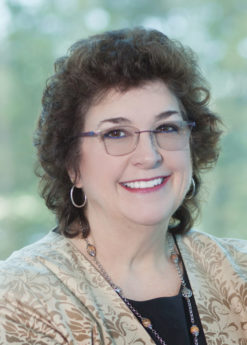 Jenifer Purvis
Jenifer Purvis
Security Benefit, Topeka
Purvis is a Texas native who earned a marketing degree at Texas A&M, near her childhood home in the College Station area. She chose that career track after various assessments said it was the best fit for her personality and interests and worked for two large companies—one with 30,000 employees and one with 6,000—before she had an awakening. “In companies of this size, even as an officer, it can be difficult to make your mark and/or drive change,” she says. “Security Benefit afforded the opportunity for me to come into a mid-sized organization and be part of a small, key group of decision-makers.” She began there by leading the marketing department, and is now the Head of Human Capital for a company with a sizeable national footprint in retirement services, managing more than $50 billion in assets. “I believe that my knowledge of our business and products has really enabled me to connect with managers and associates in all areas over the years because I understand what their day-to-day responsibilities and stressors are—I’ve walked in their shoes,” she says. When she started there, she was seeing Kansas for the first time. “I guess my expectations were cowboy boots, barbecue, flat prairie land and tornadoes,” she says. Now an entrenched Kansan, she considers Topeka “a wonderful place to raise a family. The cost of living is very reasonable, the educational system is very strong, and there are great things to do and see.”
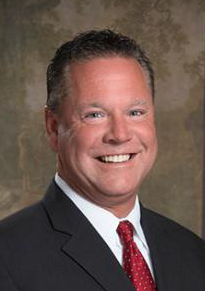 Barry Queen
Barry Queen
Queen’s Price Chopper, Paola
Barry Queen was doing quite nicely with his sun-tanning operation in Lawrence in 1988 when his father, a grocery-store owner, asked him to come back to the family grocery in Paola. “I said, ‘Dad, if I come back, we’ve got to grow, and we have to improve our technology to do it.’ He agreed.’” That was Barry’s entrepreneurship speaking, as well as his business degree from K-State. He opened the store’s first deli, it’s first bakery, implemented back-office pricing, and started growing. By then, the Paola store was flying the Price Chopper flag, and Barry added stores to the fold in Spring Hill, Overland Park, Stilwell and Bonner Springs. “Dad turned me loose to do my own thing,” he says. He also inherited from his father a commitment to Associated Wholesale Grocers, the retailer-owned cooperative for which his father had served as controller before opening the family’s store. Barry joined AWG’s board in 2001, and has served as chairman since 2015 for a 3,000-member organization with stores in 38 states. He’s confident that, in an era of rapidly rising prices, the member stores have bene able to hold the line and keep shelves filled more effectively than some very large competitors. “Sometimes when you’re not as automated, you can reactive faster, as we did when COVID hit,” he says. “We probably had more days of inventory on supply than most others, and it benefitted us.”
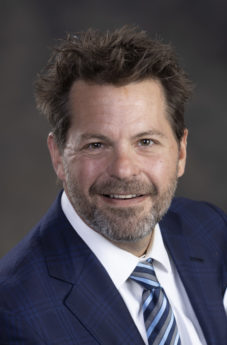 Chris Ruffin
Chris Ruffin
Hyatt Regency, Wichita
Among this year’s 50 Kansans You Should Know—or any from the previous 11 years—we’re pretty sure only one who has laid down tracks with his own album recorded at a Los Angeles studio: Chris Ruffin. That was in 2015, before he set aside his musical passions to enter the hospitality world, working for his father in Las Vegas. His father being Phil Ruffin, who made his fortune in Wichita operating a chain of convenience stores and gas stations before relocating to Vegas. The younger Ruffin has had a wide-ranging career path, starting after his studies at the Guitar Institute of Technology in California, then the University of Kansas. After hotel gigs in Long Beach and Vegas, he returned to Wichita in 2001 to work in real estate. A year after he recorded “The Other Side,” his father dropped $20 million to buy the Hyatt Regency from the city, then summoned his son to run it. Hotels nationwide took their lumps during the pandemic, but Ruffin is increasingly optimistic. “National travel predictions say business and groups will be slow to return, not making a full recovery until 2024,” he says. “We are currently trending above these predictions, while positioning HRW as an authentic hospitality brand that is trusted and provides a high-quality experience to our guests.” The Hyatt is the city’s biggest hotel, with 303 rooms, ideally situated on the east bank of the Arkansas River downtown.
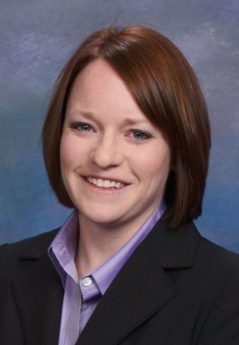 Suzanne Ryan-Numrich
Suzanne Ryan-Numrich
Dept. of Agriculture, Manhattan
How “Kansas” is Suzanne Ryan-Numrich, the state’s agricultural trade director? If you’re a native Kansan, where was your hometown; if not, how did you make your way to Kansas? Well, she says, “I’ve studied and worked overseas—I joke that I’ve lived in three countries: China, Mexico, and Missouri. But Kansas, she says, “is where my heart is, and it has been since her childhood in Scott City, “It was a great place to grow up—I was surrounded by hard-working, supportive people,” she recalls. The rural influence of her youth led her to an agricultural niche: meat science. “I’ll be honest; I’m not sure I knew that meat science was an actual area of study before I got to Kansas State,” she says. “Meat science found me through my undergraduate adviser, who encouraged me to join the meat judging team—yes, that’s a thing!” At the ag department, she’s part of a team working to grow Kansas exports with trade and buyer missions. Before taking that role, she worked at Smithfield Foods and was reluctant to tell them she might be leaving, but “they said ‘Suzanne, that sounds like your dream job! You’d be crazy not to take it!’” Her work is the tip of the spear in an effort to meet increasing meat and protein demand worldwide. “Kansas is one of the best in the world in terms of red meat production,” she says, “and year after year it is easily our top export category.”
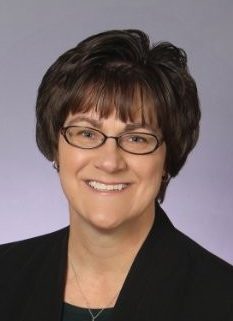 Linda Salem
Linda Salem
Great Plains Manufacturing, Salina
“There is no doubt that right now the competition for talent is fierce.” So says Linda Salem, CEO for Great Plains Manufacturing, which produces farm implements for seeding and tillage. She wages that battle every day, but it’s a different battle-field in north-central Kansas than her peers see in KC or Wichita. “To succeed, a company needs the basics like competitive pay and benefits and the intangibles of a healthy work culture,” Salem says. “We recruit successfully from within the communities we are in and are also successful in attracting talent from across the nation.” Add in some grow-your-own programs like the company’s internal welding school, and a quality work force can be forged. Indeed, Salem says, “In 2021, we grew our manufacturing work force by 26 percent. We need to continue to grow our work force in 2022.” Salem is a Great Bend native who earned a business administration degree at K-State, became a CPA specializing in audit and consulting, and learned what makes a successful business tick. In 1994, after managing the Great Plains account for the Kennedy & Coe firm, she made the leap to a company with operations in eight Kansas communities, producing ag implements, attachments for tractors and various turf and snow-removal machinery. “I knew that this would be a terrific group of people to work with,” Salem says. “They are customer-focused, competitive and ethical. Great Plains has a strong team spirit that keeps everyone working together towards company goals. The fast pace of growth provides a steady opportunity for new challenges.”
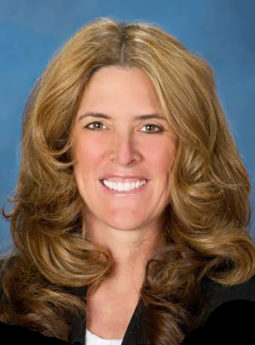 Susie Santo
Susie Santo
Visit Wichita, Wichita
Susie Santo wouldn’t get anything else done if she had to count her blessings as director of Visit Wichita, the city’s tourism arm. Because she has lots of arrows in her tourism quiver—unmatched outdoor activities, high-level museums rooted in art, history, culture and education; Division I college basketball (often as an NCAA Tournament game site) and minor-league hockey; shopping attraction; a zoo that punches far above its mid-size city weight, thanks to some inordinately wealthy patrons; a dazzling botanical garden; high-level symphony and ballet offerings—you get the idea. It’s been said that life in Wichita is virtually indistinguishable from the experiences of people in Johnson County, just across the line from Kansas City, save for two things: The Royals and the Chiefs. Santo, then, has had a lot to work with since she arrived in Wichita nearly a decade ago from her previous stints as chairman of the California Travel Industry Association and director of sales for Universal Studios Hollywood. The Wichita job was a coming-home of sorts for Santo, who rode a tennis scholarship at the University of Kansas to a degree in business. She soon made an impact in Wichita, spearheading the creation of the state’s first Tourism Business Improvement District, generating a revenue source to improve the city’s marketing. She’s making a civic impact with board service that has included the Wichita Chamber of Commerce, Wichita Downtown Development Corporation and the Sports Commission.
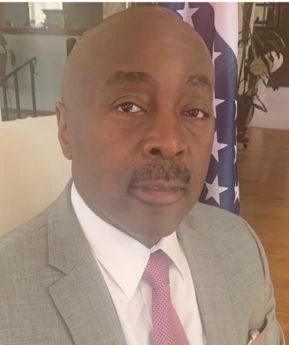 Del Selectman
Del Selectman
Dello Eco, Kansas City
The unemployment rate in Kansas fell to 2.8 percent in January—lower, even, than where it stood before the pandemic. Talent is at a premium for hiring managers. And at the same time, the state has 20,000 or more people on parole or probation, seeking second chances. So the math comes easy for Del Selectman, who founded construction-services company Dello Eco in 2014. “I call them second-chance citizens,” he says, and he’s made a commitment to on-boarding them through the company. Dozens of former inmates have found their way into productive roles through his efforts, and they’re not just trying to get by flipping burgers on minimum wage: “Many of these construction-related jobs start—start—at $18 an hour or more,” Selectman says, and that income is the pathway back to a normal life. Selectman is a self-described third-generation entrepreneur. His grandfather founded Economy Hall in 1945, securing a government grant to train workers, many of them veterans of World War II, in basic masonry, mechanics, plumbing and electrical skills. His father ran an auto-services business that flexed its civic muscles with Christmas toy drives and active roles in city and state issues. “The only business model I identified with was that of an entrepreneur,” he says. “Businesses don’t fail; however, you can fail the business.” In addition to the anti-recidivism efforts, he says, “I support the MBE/WBE program with their challenges with inclusion within work opportunities. I have always been a staunch supporter of our democracy and the constitution and its principles navigating this grand experiment.”
 Tiffany Stovall
Tiffany Stovall
Kansas Manufacturing Solutions, Lenexa
Kansas is a farm state, right? What better way to demonstrate that than by noting the impressive $17.5 billion in annual farm and ranch cash receipts. So why isn’t manufacturing top of mind nationally in discussions about the Sunflower State economy? There, it generates better than $27.5 billion a year, more than half again what agriculture produces. But even at that level, Tiffany Stovall sees room for growth. She’s CEO at KMS, leading a mission to do just that: create measurable growth for Kansas manufacturers. A University of Missouri graduate who clearly has overcome any Border War reservations, she’s been with KMS since 2010, when she started in an energy-sector project management role, and rose to vice president of partnership operations before becoming CEO. Her work allows Stovall to witness first-hand the profound changes reshaping manufacturing globally, nationally and across Kansas. KMS is a non-profit that helps small and medium sized manufacturers improve operational efficiencies and maximize profits with programs in continuous improvement, work-force development, quality an compliance issues and other service lines. Outside of work, she’s on the Wyandotte Economic Development Board’s executive committee, and the work-force and entrepreneurship board for Kansas City Kansas Community College.
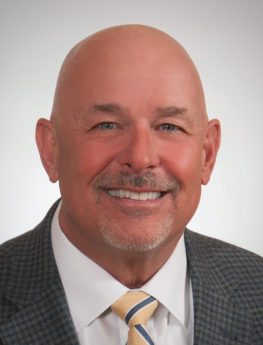 Tracy Streeter
Tracy Streeter
Burns & McDonnell, Lawrence
Tracy Streeter was a farm kid, where the family raised cattle, corn and soybeans in Brown County, near the tiny burg of Everest. His early goal in life was to farm, but fate closed one door and opened another. Coming out of Missouri Western in the mid-1980s, he ran headlong into a farm downturn and sky-high interest rates. “It was not,” he says, “a good opportunity.” When a friend’s brother suffered a paralyzing accident, Streeter’s pal encouraged him to apply for the job that unfortunate lad was pursuing with the Kansas Conservation Commission, then to the Kansas Water Office. In a state covering 82,000 square miles, few people understand the diversity of challenges to water needs. The arid west over-relies on underground supplies; the east is tied to the fate of the Missouri River; old reservoirs are filling with sediment. Scores of competing interests and organizations are stakeholders. “Kansas probably has as many of them as any state in the nation, if not more,” Streeter says. After nearly 30 years in that office, he shifted from the public sector to the private with Burns & McDonnell, working with cities on big water projects. The change in perspective has been clarifying. From the public side, dealing with raw water supply, he says, “I didn’t really understand the responsibilities that municipalities have in making sure we have a safe, reliable water supply and clean water” on the demand side. His work now provides a more balanced view on how cities can achieve their goals.
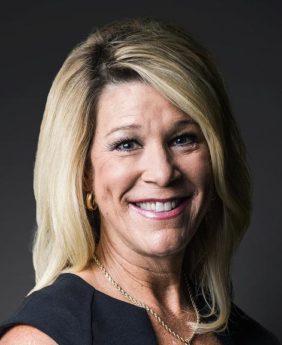 Kristin Tyson
Kristin Tyson
CrossFirst Bank, Olathe
Kristin Tyson’s first car came with a monthly payment—and a lifetime of inspiration. She had to co-sign for the loan on it, she recalls, and “that banker took the time to explain the importance and responsibility of establishing good credit and how important it would be for my financial future. That really made an impact on me. … I decided then that I wanted to be a banker. I wanted to have the same opportunity to make that type of positive impact.” To that end, the Shawnee Mission North graduate picked up a finance degree and her MBA at Washburn University. She worked at various regional banks with roles of increasing responsibility and saw a new opportunity when a fledgling CrossFirst launched in 2007. It aligned with her personal values, she says, with its “vision, purpose and promise of being the most trusted bank in the market by making and keeping promises.” She’s now market president for a bank that has witnessed explosive growth and ranks among the area’s biggest hometown banks, with more than $5 billion in assets. It has thrived by taking advantage of the same attributes available to other businesses in the state. “Kansas provides businesses with a robust business climate, full of pro-business organizations throughout the state, as well as economic programs that encourage commerce and investment,” Tyson says. “Our great school systems, Midwest values, access to great health care, and attractive cost of living allow businesses to attract and retain great talent.”
 Janeth Vazquez
Janeth Vazquez
Southwest Regional Health, Liberal
Janeth Vazquez became a Kansan when she was 3, thanks to the quest for the American Dream that has brought tens of thousands of immigrants to the state, including her parents. They settled in Liberal, and Vazquez finished high school there, studied journalism at Seward County Community College and Wichita State, and started her TV news career in Wichita. When she had her first child in 2014, she knew it was time to go back home. “Liberal was the right choice,” she says. “This is home, and this is where my family is.” She got into journalism “because it remains a critically important craft in our society and a crucial backstop to democracy,” something that gives a voice to the voiceless and connects ordinary people to those in authority. She may return to that field one day, when her son is older, but has found a better fit as a working mother at Southwest Medical Center as marketing manager. “I knew instantly it would be the perfect fit,” she says. “I could put my skills to use and make a difference in my community.” She added to that civic commitment by recently earning a seat on the Liberal City Commission. “People who share my identities are underrepresented in almost all forms of government across the United States,” she says. “People of color, young people, and women are underrepresented at the local level in my hometown. I saw running for officer as an opportunity to get involved in my community and discuss issues that affect us all.”
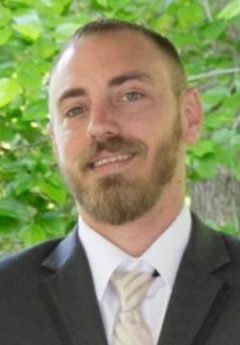 Jesse Vliet
Jesse Vliet
Hooray Ranch, Kingman
Little kids have Disneyland. Big ones who hunt for deer, turkey, pheasant and waterfowl have the Hooray Ranch near Kingman, just minutes west of Wichita on U.S 54. It’s a sportsman’s paradise, set against the backdrop of a massive, 20,000-acre managed wildlife habitat. So, yes, Jesse Vliet has the job most any avid hunter might relish as general manager of the place. He and the Hooray team work to provide an unmatched experience that combines the rugged outdoor challenges of a day in the field with high-end accommodations that ooze relaxation at night, including a rustic-themed restaurant offering thick steaks, pork loin, poultry and whole-hog barbecue—or kicking back in the bar with live music. The ranch campus consists of six buildings, including the 10,000-square-foot Mallard Mansion and a larger, 15,000-square-foot facility called The Refuge, the signature attraction, with multiple suites in each. The smallest accommodation is a one-bedroom cabin. The ranch was created by Eric Dunn, a Wichita businessman, who had a hit on his hands as soon as the first guests started checking in less than a decade ago. He put it on the market last year, and the listing stood for all of one month before an Arkansas couple swept in and dropped $32 million to buy it. Now the day-to-day oversight is in the hands of Vliet, who most recently had his own remodeling and painting business.
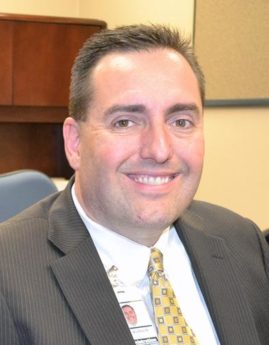 Bill Voloch
Bill Voloch
Wesley Healthcare, Wichita
Wesley Medical Center, part of the national HCA empire, is the big dog of hospitals in the state’s biggest city, and Bill Voloch is holding the leash. He became the CEO there in 2015, a year after he took that role on an interim basis. Wesley, long a dominant force in health-care delivery for south-central Kansas and Oklahoma, has a 760-bed facility and 859 system-wide. It provides acute-care services for 24,000 patients a year and has 900 physicians on staff. And if it had a mascot, perhaps that would be a stork: the hospital says it delivers more than 6,000 babies a year, more than any of its competitors in a 13-state region. Like every hospital CEO in America, he’s been leading his teams through the most challenging public health crisis any of them has ever seen with the pandemic that started in 2020. “Anytime you go through a disaster, the unknown is probably the biggest problem,” he said at a gathering of civic leaders as the first wave of COVID was receding. Voloch originally came to Wichita in 2013 as Wesley’s chief operating officer and helped lead planning and development of Wesley’s $28 million children’s hospital, development of the Wesley EmergencyCare Network and capital projects that included a $36 million renovation of the women’s hospital. Since he took the helm, Wesley Healthcare has experienced the highest employee, physician and patient satisfaction scores in the organization’s history.
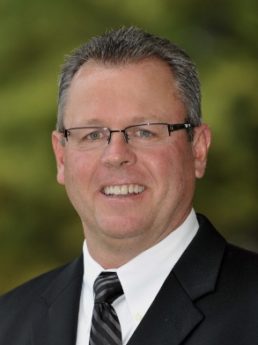 Robert Wood
Robert Wood
Wood-Dulohery Insurance, Parsons
There was a time, Bob Wood recalls, when he thought he’d be in the lumber business for good. He’d landed in Wichita, working with builders for the big hometown brand Star Lumber Co., and the young woman he met there, soon to be his wife, was part of the ownership family. “I fell into some good luck there,” he recalls. But his mother, who owned part of an insurance and realty firm in his hometown, made a sales pitch that brought him back to Parsons. “It’s almost 40 years later, and it’s been a wonderful deal,” says Wood, a co-owner at Wood-Dulohery, which has insurance and real estate operations. A wonderful deal for the community, as well. Wood’s civic commitment placed him in a leadership role when the Defense Department shuttered the Parsons Army Ammunition Plant in 2009, creating a gaping hole in the regional business ecosystem. He was part of a group that seized the opportunity and, in 2012, acquired the land that is now home to Great Plains Industrial Park and is chairman of the authority that owns that massive, 6,800-acre rail-served industrial park. “We put our heads together to figure out how to deal with it,” he says of the plant closing. “It was an uphill battle, but we’re about to win it.” That’s helped keep things on an even keel, but, as Wood notes, “Parsons doesn’t have highs and lows—it just kind of maintains economically. There are good opportunities to go on the upside, and a lot of good people here in town.”